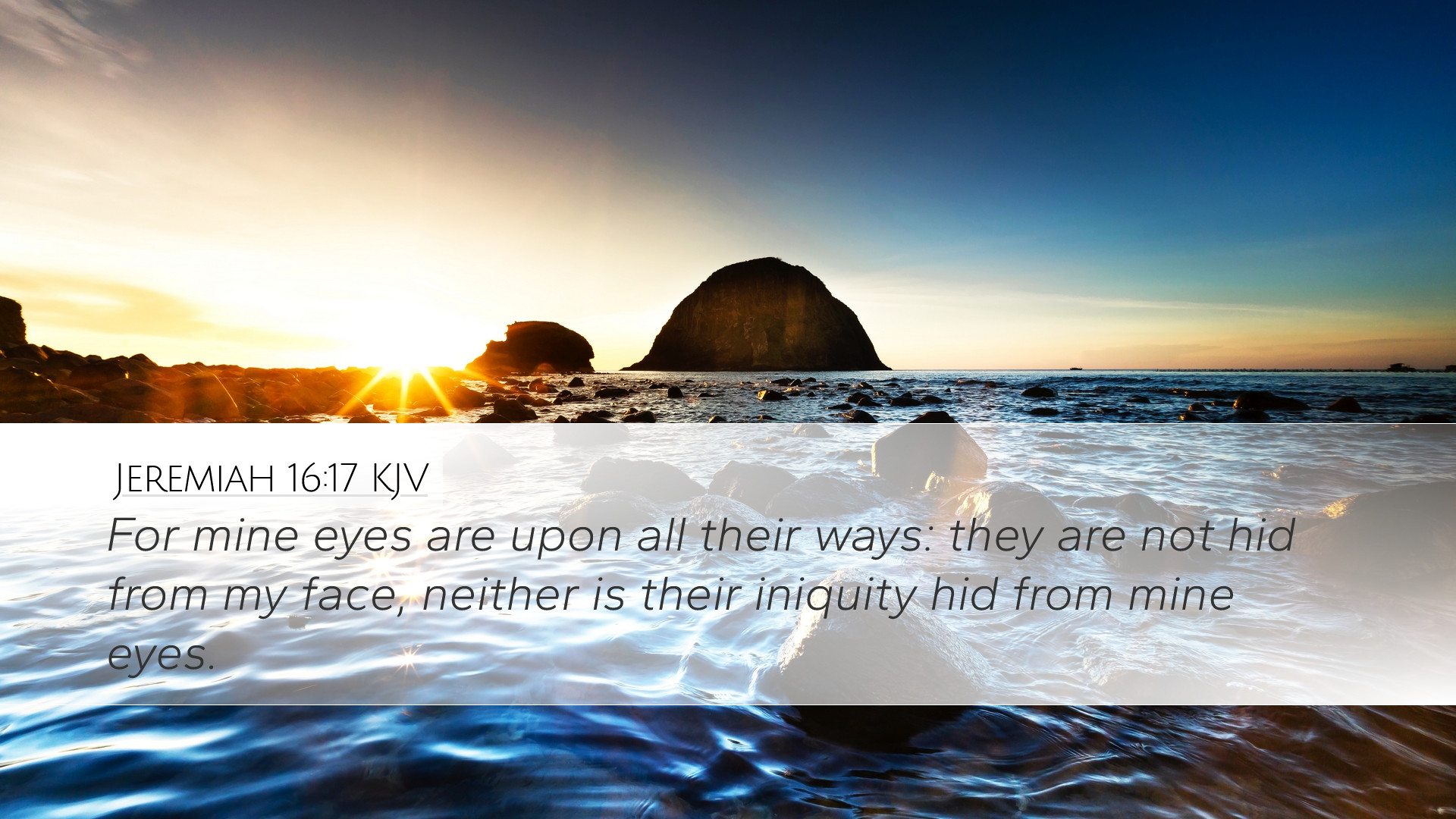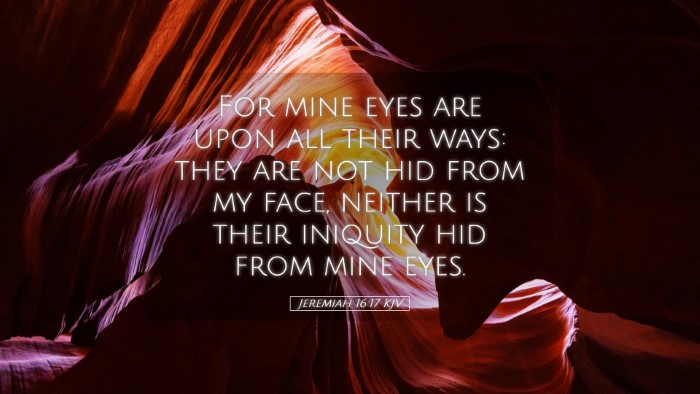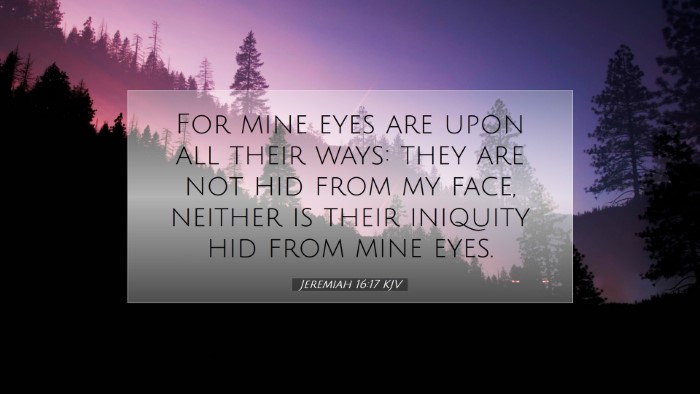Commentary on Jeremiah 16:17
Jeremiah 16:17 states: "For mine eyes are upon all their ways: they are not hid from my face, neither is their iniquity hid from mine eyes." This verse emphasizes God's omnipresence and omniscience, foundational tenets of Judeo-Christian theology.
Understanding the Context
This passage occurs during a time of great turmoil for the people of Israel. Jeremiah is conveying God’s message to a nation steeped in sin and rebellion. The Lord expresses that despite their attempts to hide their sins, nothing is concealed from Him.
The Nature of Divine Observation
Matthew Henry remarks that God's eyes are upon all people, surveying their conduct. He asserts that this divine scrutiny serves both to assure the righteous and to warn the wicked.
Albert Barnes elaborates that God’s awareness is not just a passive observation; it encompasses an active engagement where He sees all actions, intentions, and the true motives behind human behavior. This is foundational as it assures believers of God's justice and righteousness.
Implications for Believers
When reflecting on this verse, believers should understand that their lives are lived in the full view of God. This awareness prompts personal accountability and integrity. Adam Clarke emphasizes that this divine vigilance encourages the faithful to live in a manner that is worthy of God's constant observance.
The Inescapability of Iniquity
The latter part of the verse indicates that neither the actions of the people nor their iniquity is hidden from God's sight. Matthew Henry suggests that this should bring a sober realization among the people; their sins cannot be concealed nor excused simply because of their denial or oblivion.
Albert Barnes asserts that God’s awareness of sin serves as a call for repentance, indicating that divine grace is available for those willing to seek it.
God's Justice and Mercy
Adam Clarke points out that while God's eyes see every act of disobedience, He also extends mercy to those who turn from their sin. This balance of justice and mercy invites profound theological reflection.
Theological Reflections
This passage may lead to a deep contemplation of God's nature. It captures the dual reality of divine intimacy and the solemnity of divine judgment. Matthew Henry suggests that understanding God's omnipresence should motivate believers to act righteously, as their lives are constantly under divine observation.
The Call to Holiness
Knowing that all our ways are seen by God compels believers to pursue holiness and integrity in all aspects of life. Albert Barnes affirms that the knowledge of God’s watchfulness should encourage believers to live lives that reflect their faith. This desire for holiness aligns with God's call for His people to be set apart.
Practical Applications
- Personal Accountability: Understanding God's watchful gaze should instill a sense of personal responsibility in one's actions.
- Encouragement to Repent: Recognizing that sin cannot be hidden offers believers the grace to approach God in repentance and receive forgiveness.
- Commitment to Righteousness: An awareness that God sees all encourages believers to strive for lives that honor Him in truth and integrity.
Conclusion
Jeremiah 16:17 serves as a poignant reminder of God’s omniscience and omnipresence. Hidden from no one’s sight, this divine awareness calls His people to live in truthfulness and holiness. Matthew Henry, Albert Barnes, and Adam Clarke collectively emphasize the importance of reflecting on this truth, urging believers to find comfort in God's justice and grace.


